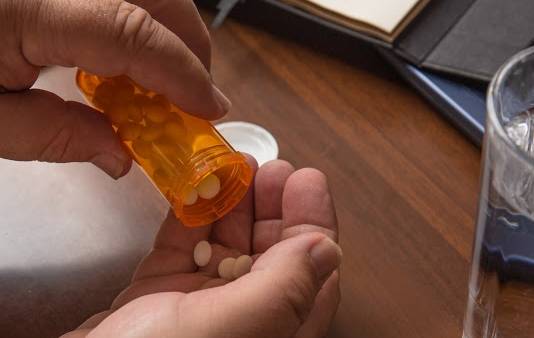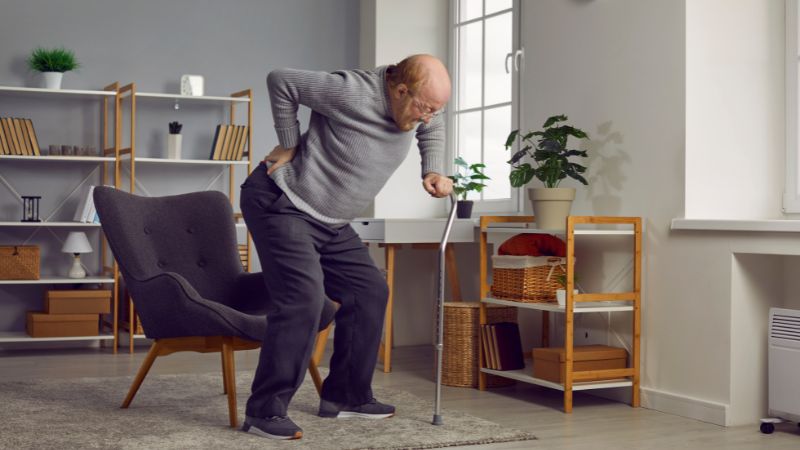 Urinary tract infections (UTI) are common in the elderly. Seniors are more vulnerable to infections, like a UTI, because their immune systems naturally weaken with age. Older adults who are prone to UTIs or those who experience such an infection can take steps to recover.
Urinary tract infections (UTI) are common in the elderly. Seniors are more vulnerable to infections, like a UTI, because their immune systems naturally weaken with age. Older adults who are prone to UTIs or those who experience such an infection can take steps to recover.
What is a UTI?
The body features a urinary system, which includes the kidneys, bladder, ureters (tubes that carry urine from kidneys to the bladder) and urethra (tube that carries urine from bladder to the outer body). An infection that occurs in any part of the urinary system is called a urinary tract infection.
What causes as UTI?
Bacteria, like E. Coli, is a primary cause of infection. Bacteria from fecal matter is known to cause a UTI, especially when the senior fails to wipe from front to back during toilet use. Bacteria can also move into the urethra through sexual activity.
Why are seniors more prone to UTIs?
A weakened immune system plus a host of physical ailments can lead to seniors experiencing UTIs more often than younger people. Diabetes, an enlarged prostate, kidney stones and surgery around the bladder area can cause older individuals to be more susceptible to a UTI. Physical conditions, like immobility, can force the senior to lie in bed for extended periods and lead to an infection. Urinary and bowel incontinence, which are common in the elderly, are also risk factors for UTIs. The use of a urinary catheter is frequently responsible for UTIs. Elderly women tend to suffer from UTIs more often than their male counterparts, due to the female urethra being far shorter; bacteria have only a relatively small distance to travel in order to reach the bladder and trigger an infection.
What are symptoms of a UTI?
When a UTI is present, the senior’s urine will appear dark or cloudy. Blood may even pass through the urine. The elderly individual’s urine may also have a strong, foul smelling odor. The senior may have to pass urine more frequently or have an urgent need to urinate. A burning sensation or pain during urination is also a physical indicator of a UTI. The older person might feel pressure in the lower abdomen area, signaling the possibility of an infection. A low-grade fever also accompanies a UTI. Night sweats, shaking and chills are typical symptoms of a UTI. The aforementioned physical symptoms of a UTI may not always be present in a senior, because their immune system could be too weak to effectively respond to the infection. Additionally, the elderly may be unable to express discomfort or pain to a family member or caregiver. However, caregivers can pinpoint an infection in the body when the senior suddenly becomes confused or experiences delirium. Infection is also a cause of hallucinations, agitation, and unusual behavioral changes. A senior who falls, loses coordination, or becomes dizzy may likely suffer from an infection.
How do seniors recover from UTIs?
The first choice of treatment for UTIs is an antibiotic. Milder cases of UTIs clear up within a few days once the senior starts taking the right antibiotic. Drugs for UTIs include amoxicillin and nitrofurantoin. Severe infections require antibiotics, like ciprofloxacin and levofloxacin. A senior with a UTI should see a doctor right away and start taking antibiotics for the prescribed length of time. Stopping the treatment abruptly, even if the senior feels better, can lead to antibiotic resistance or risk a reoccurrence of the UTI. Medication compliance is critical since antibiotic overuse can also lead to antibiotic resistance. Due to this risk, a medical doctor will prescribe the shortest treatment course possible. Usually, the course of treatment is seven days, and the infection will resolve within a few days. Prophylactic antibiotics are effective treatments for seniors who experience frequent UTIs. Older people who have two or more UTIs in a six-month period or more than three UTIs in a 12-month period are ideal candidates. The prophylactic antibiotic is taken daily to prevent a UTI. Healthy seniors can circumvent the pain of a UTI with over-the-counter UTI pain relievers. Frequent and burning urination may be eased with Tylenol (acetaminophen), Azo (phenazopyridine) or Advil (ibuprofen). Seniors can use a heating pad or hot water bottle for relief of back and pelvic pain.
What helps reduce the risk of a UTI?
A UTI cannot always be prevented, but seniors can take steps to reduce their risk of developing an infection. Seniors are advised to drink plenty of fluids, like cranberry juice or water, daily to flush out bacteria. They should avoid consuming bladder irritants, like alcohol and caffeine. The risk of UTIs can be reduced if seniors urinate as soon as the urge to do so arises. Caregivers should set a schedule for regular bathroom breaks for seniors who are memory impaired. Soiled incontinence briefs should be changed immediately. Showers, rather than baths, are recommended.  Dependable in-home care is critical for seniors who are unable to remain alone at home for extended periods. Assisting Hands Home Care is a reputable elder care service provider prepared to meet the daily needs of seniors at all levels of functioning. If your elderly loved one has a UTI, a dedicated caregiver from our senior care agency will provide the transportation to the doctor’s office. We’ll also provide timely medication reminders so that antibiotics are taken on schedule and for the prescribed length of time. Assisting Hands Home Care providers also help with incontinence issues. We discreetly assist with toilet breaks and personal hygiene tasks. Our professional caregivers support seniors with mobility issues; we help the elderly into and out of bed and gently shift them as needed. Families who require overnight care for aging loved ones can turn to Assisting Hands Home Care for compassionate elder care services. We are available throughout the night and into the morning for seniors living in Batavia, Aurora, Bartlett, Geneva, St. Charles, Illinois, and the surrounding areas. Call us at (630) 332-2203 for an in-home assessment. Source: https://www.agingcare.com/articles/urinary-tract-infections-elderly-146026.htm, https://www.healthline.com/health/uti-in-elderly, https://www.aplaceformom.com/caregiver-resources/articles/urinary-tract-infections
Dependable in-home care is critical for seniors who are unable to remain alone at home for extended periods. Assisting Hands Home Care is a reputable elder care service provider prepared to meet the daily needs of seniors at all levels of functioning. If your elderly loved one has a UTI, a dedicated caregiver from our senior care agency will provide the transportation to the doctor’s office. We’ll also provide timely medication reminders so that antibiotics are taken on schedule and for the prescribed length of time. Assisting Hands Home Care providers also help with incontinence issues. We discreetly assist with toilet breaks and personal hygiene tasks. Our professional caregivers support seniors with mobility issues; we help the elderly into and out of bed and gently shift them as needed. Families who require overnight care for aging loved ones can turn to Assisting Hands Home Care for compassionate elder care services. We are available throughout the night and into the morning for seniors living in Batavia, Aurora, Bartlett, Geneva, St. Charles, Illinois, and the surrounding areas. Call us at (630) 332-2203 for an in-home assessment. Source: https://www.agingcare.com/articles/urinary-tract-infections-elderly-146026.htm, https://www.healthline.com/health/uti-in-elderly, https://www.aplaceformom.com/caregiver-resources/articles/urinary-tract-infections















